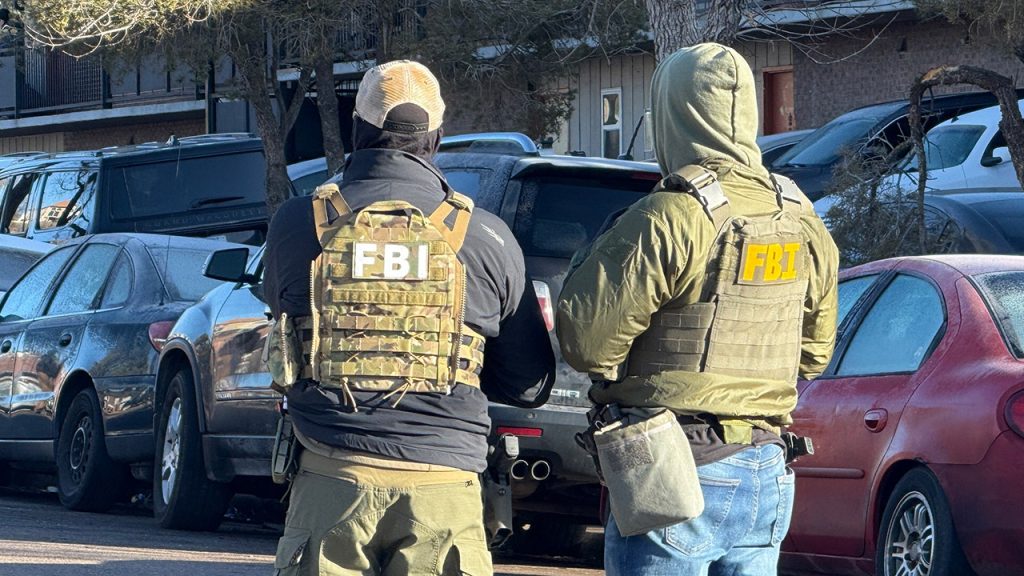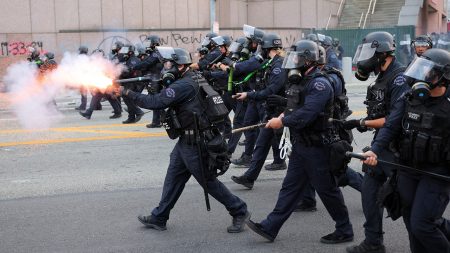U.S. Immigration and Customs Enforcement (ICE), in conjunction with several federal law enforcement agencies, launched a large-scale operation in Denver and Aurora, Colorado, targeting members of the Venezuelan gang Tren de Aragua. The operation, which involved over 100 personnel from ICE, the FBI, DEA, CBP, ATF, and the U.S. Marshals Service, aimed to arrest and detain individuals associated with the violent gang. While the exact number of arrests remains unclear, the operation underscored the growing concern over the gang’s presence and its alleged involvement in criminal activities within the United States. The operation, initially slated for the previous week, involved the execution of search warrants at various locations, including the Cedar Run Apartments, a known hotspot for drug-related activity.
The DEA’s Rocky Mountain Division played a significant role in the operation, releasing a video depicting agents deploying what appeared to be a smoke device during a search. The Cedar Run Apartments became a focal point of the operation following three fentanyl-related deaths reported at the complex within the preceding month. Inside one of the apartments, authorities discovered a memorial message dedicated to those lost to drug addiction, further highlighting the devastating impact of the ongoing opioid crisis. The multi-agency operation represents a concerted effort to dismantle criminal networks and address the escalating public safety concerns associated with drug trafficking and gang violence.
The operation sparked controversy and raised concerns within the community, particularly among residents of the Cedar Run Apartments. One long-term resident recounted an encounter with heavily armed officers who demanded identification and inquired about the immigration status of her neighbors. She expressed outrage and a refusal to cooperate, emphasizing her belief in her neighbors’ right to reside in the complex regardless of their documentation status. The incident underscored the tension that often arises between law enforcement efforts to apprehend suspected criminals and the anxieties of immigrant communities facing potential scrutiny and deportation.
ICE’s Enforcement and Removal Operations (ERO) Denver defended the operation, emphasizing the agency’s commitment to removing “public safety threats.” ERO Denver argued that sanctuary policies embolden criminal aliens, allowing them to commit crimes without fear of repercussions. This statement reflects the ongoing debate surrounding sanctuary policies, which limit local law enforcement cooperation with federal immigration authorities. Critics of sanctuary policies argue they hinder efforts to remove dangerous criminals, while proponents contend they foster trust between immigrant communities and law enforcement, ultimately promoting public safety.
The operation against Tren de Aragua highlights the growing concern over transnational gangs operating within the United States. The Venezuelan gang, known for its involvement in various criminal activities, including drug trafficking, extortion, and human smuggling, has reportedly expanded its reach beyond its country of origin. The operation’s focus on this specific gang underscores the government’s efforts to disrupt and dismantle transnational criminal organizations that pose a threat to national security and public safety.
The multi-agency operation in Denver and Aurora underscores the complex challenges facing law enforcement agencies tasked with addressing criminal activity while navigating sensitive community dynamics. The operation’s focus on a violent transnational gang, the involvement of multiple federal agencies, and the community’s reaction highlight the multifaceted nature of immigration enforcement in the United States. The operation’s aftermath will likely continue to fuel the ongoing debate surrounding immigration policy, sanctuary cities, and the balance between public safety and the rights of immigrant communities.










